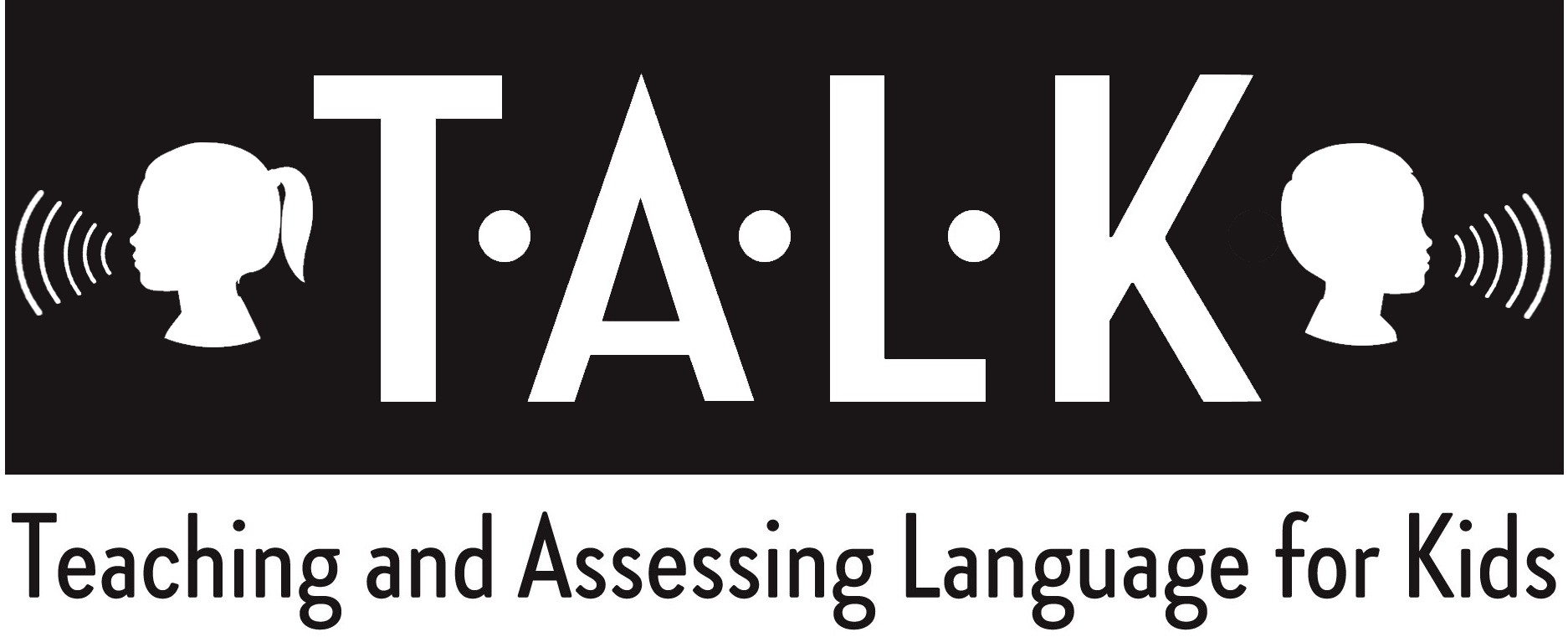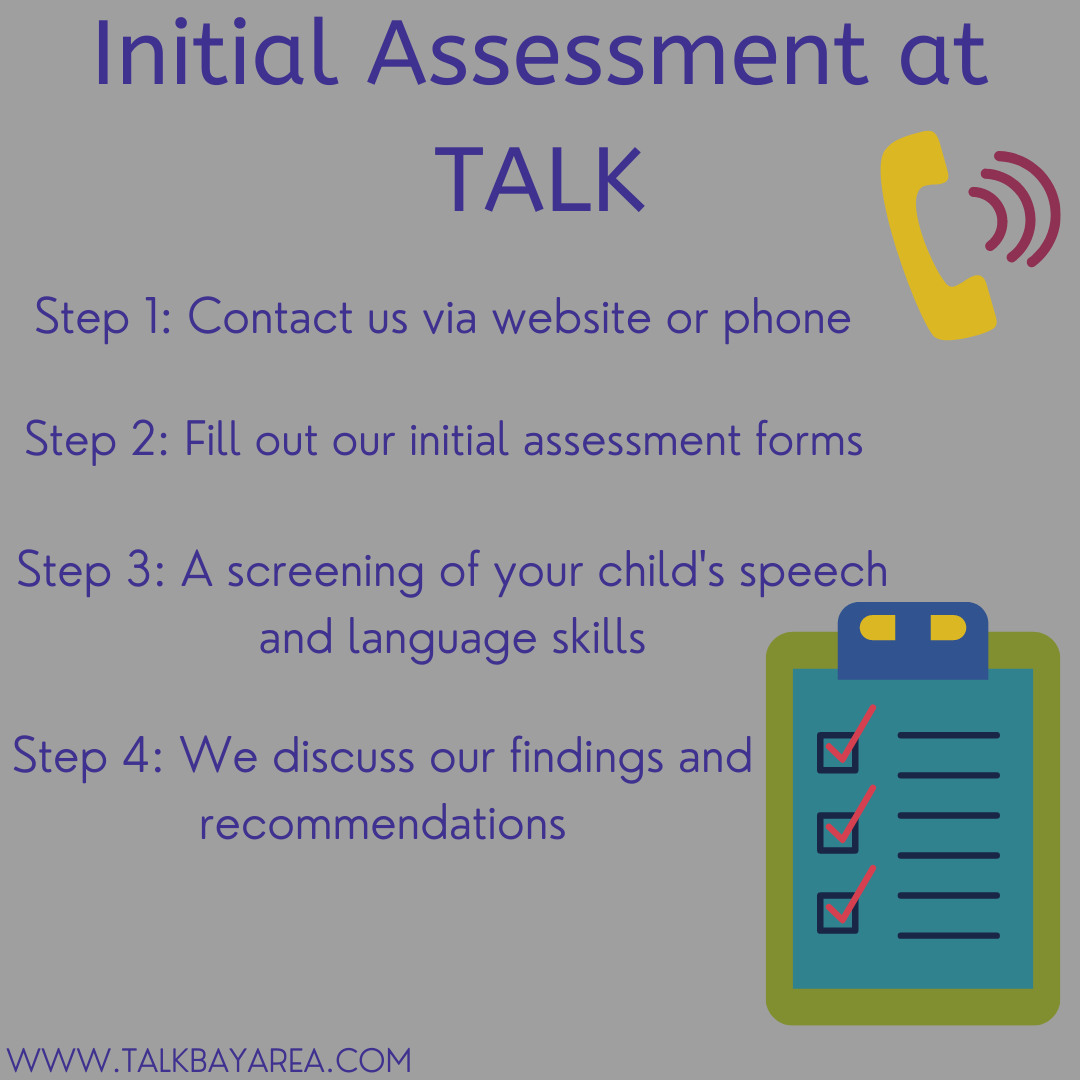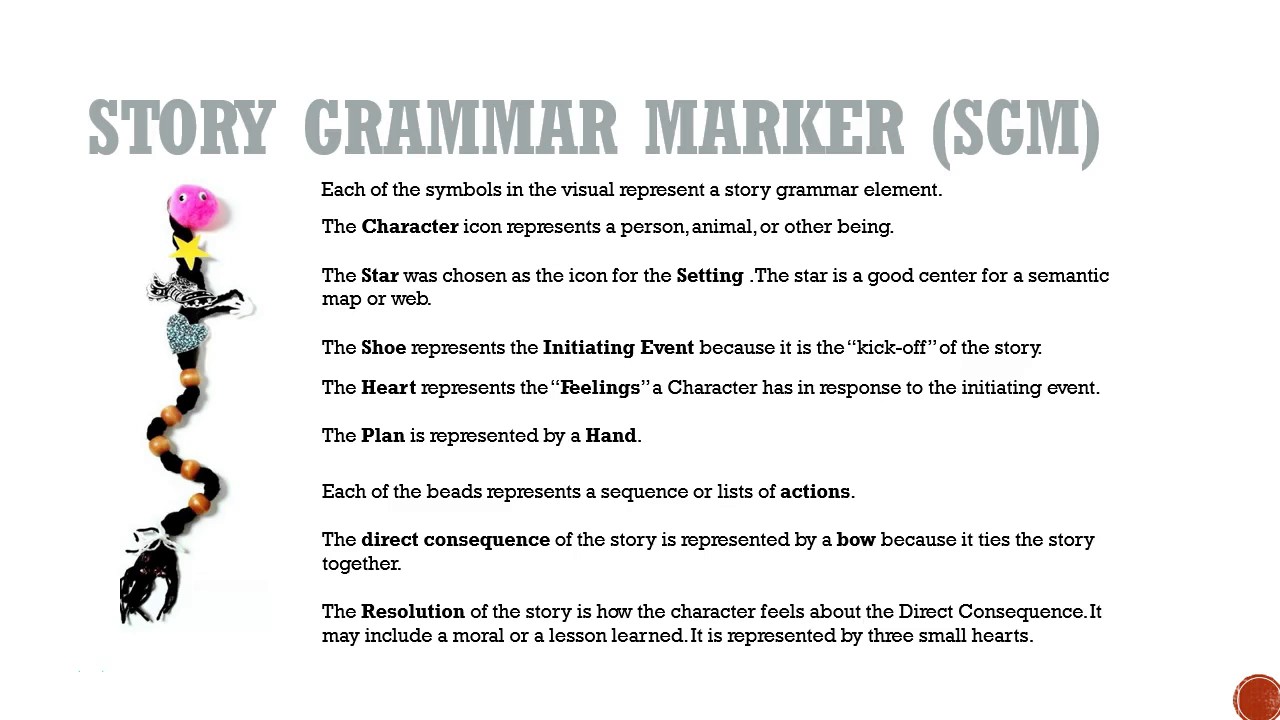The initial evaluation at TALK may look a little different compared to other clinics and school assessments. At TALK, we complete what is called an initial intake assessment followed by diagnostic therapy sessions.
During the initial intake session, our directors engage with the child much like a regular therapy session while identifying the child’s strengths and areas of need. They do this by selecting a variety of play-based and structured tasks to elicit natural speech and language. With the information they gather, they will then compare it to our milestones and the skills the child should have by their age. At this time, our directors will then recommend the length and frequency of sessions and determine if the child would be appropriate for individual and/or group therapy sessions.
Our initial intake session at TALK differs from other clinics because we often engage our clients and identify speech and language needs through a variety of tasks, rather than completing a standardized assessment. By completing an initial intake and then continuing through the diagnostic therapy process, our therapists are able to identify areas of strengths and needs and to write an individualized plan of care. “Evaluation”, “assessment”, and “testing” do not always need to be administered formally. Often, the most effective way to assess communication is by communicating! For young children, this is done through play; for older children through motivating language-based tasks. Standardized assessments are a great tool to use, but we believe it should not be the only tool used during an evaluation. We believe by assessing a skill across sessions will reflect the most accurate information and determine what treatment goals would be the most appropriate to target throughout a treatment plan.
After our initial intake assessment, our therapists then provide diagnostic therapy sessions. What are diagnostic therapy sessions? Diagnostic therapy usually occurs the first six to eight sessions at TALK. During this time, our therapists determine what skills the child should have given their age and find their level of breakdown. For more great information on diagnostic therapy sessions, please see a blog we previously wrote below!
HAS YOUR CHILD COMPLETED AN INITIAL SPEECH THERAPY ASSESSMENT AT TALK AND IS YOUR CHILD STARTING SPEECH THERAPY SERVICES?
The next step for your child is diagnostic therapy! Diagnostic therapy looks a lot like a regular therapy session except that different areas of speech and language and different therapy techniques are tried each session. We use a combination of standardized and non-standardized assessment tools, drill-based work, unstructured play, conversation, and parent input all throughout this process.
WHAT IS ASSESSED?
During diagnostic therapy, your child is assessed in all areas of speech and language, including receptive and expressive language, oral motor function, feeding, motor speech, articulation, fluency, voice, phonological awareness, literacy, academics, and social communication. The team of therapists will use informal assessment tasks and dynamic assessment to identify areas of strengths and weaknesses.
WILL MY CHILD ALSO RECEIVE THERAPY SERVICES?
In addition to assessing all areas of speech and language, therapists also use Response-to-Intervention methods for the areas that present as a challenge for your child. We use evidenced based therapy techniques to elicit effective strategies in order to teach your child new skills. The team collects qualitative and quantitative data and a plan begins to form. Long-term goals and short-term objectives are created, based on your child’s areas of strength and current areas of need, to develop a plan that is functional and tailored to your child and that takes into account your child’s true skills and learning style.
WILL I RECEIVE A WRITTEN REPORT?
Once diagnostic therapy is completed, parents and therapists will attend an initial goal meeting in which a comprehensive speech and therapy evaluation report and treatment plan are presented and discussed.
To find out more about our diagnostic process or if you have any questions, please contact our Burlingame office at (650) 344-9961 or our Danville office at 925-725-4632.










































